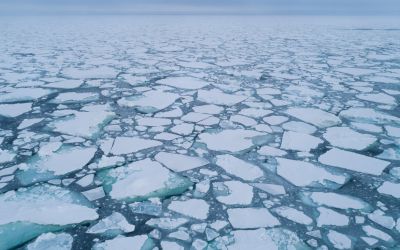Global sea level could rise by 12-22 metres because of climate change
A study published in the journal ‘Geology’ has suggested future sea levels could be up to 22 metres higher than present.

A study published in the journal ‘Geology’ has suggested future sea levels could be up to 22 metres higher than present. This is based on rock and soil cores from the late Pliocene, around three million years ago, when carbon dioxide levels in the atmosphere were last around current levels. The melt required to achieve this would include the entire Greenland and West Antarctic Ice Sheet.
Temperatures in the Pliocene were estimated to be around two degrees warmer than currently, and this is the approximate temperature rise expected with a moderate amount of climate change relative to forecasted projections. It is a striking bottom line, showing the sensitivity of ice sheets to climate change, although the time scales involved are large.
The impact of a sea level rise of this magnitude would be huge, impacting around 70 per cent of the world’s population, many of which live in coastal regions. The full effect of a dozen or more metres will not be felt for centuries or even millennia however, as the ice takes a long time to ‘catch-up’ with the climate. This effect means that, whilst we may only get half a metre of sea level rise this century, future generations will have little choice but to deal with the huge changes in sea level caused by this generations fossil fuel use.
Kenneth G. Miller, professor of earth and planetary sciences in the School of Arts and Sciences at Rutgers University, who headed the research says, “The natural state of the Earth with present carbon dioxide levels is one with sea levels about 20 metres higher than at present”.
There is very little that can be done about this eventual sea level rise, as the carbon dioxide in the atmosphere will take considerable time to dissipate, although geo-engineering could theoretically reduce ice melt and therefore limit the rise. A warming planet however, causes thermal expansion in the ocean, which causes unavoidable sea level rise.






